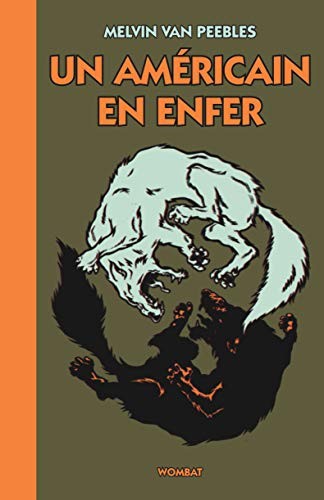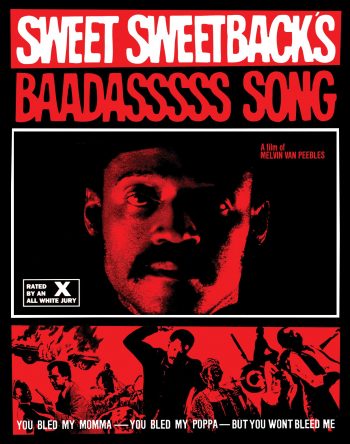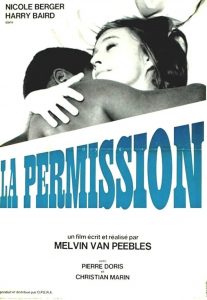This content is being reviewed in light of recent changes to federal guidance.
The Project on the History of Black Writing Mourns Melvin Van Peebles
Melvin Van Peebles passed away Sept. 21, 2021, at the age of 89, but his legacy lives on in the Project on the History of Black Writing database. Many in the cinema industry regard him as a pioneer, a trailblazer, a giant, but before Van Peebles was the godfather of Black cinema, he was Van Peebles, the writer.

Unable to make any headway, Van Peebles left for France, joining a host of writers and artists who formed an expatriate community. Once in France, he discovered that writers could adapt their novels into movies. He learned the language and began writing novels in French, which led to a number of titles, including Un Américain en Enfer (1965), La Fête a Harlem (1967), and La Permission (1967), all of which are included in HBW’s corpus. He went on to adapt La Permission into the movie, The Story of a Three-Day Pass (1967). When Van Peebles made the film, in the ’60s, Black directors were still few and far in between — in France as well as the US — if not unheard of altogether. He, therefore, wrote and directed the film himself.

It wouldn’t be until June of 2020 — 50 years later — that The New Yorker’s Richard Brody would describe the movie as “among the great American films of the sixties,” with “powerful insights and teeming imagination.” At the time of its release, the movie also gained some recognition when it premiered at the San Francisco Film Festival.
This drew the attention of American audiences, leading to his American debut, Watermelon Man in 1970. The next year, Van Peebles released his most well-known film, Sweet Sweetback’s Baadasssss Song (1971).
In his lifetime, Van Peebles was a director, producer, actor, playwright, and composer. Through all of his successes, he continued to write and publish novels.
The Black Book Interactive Project, or BBIP, has several works by Van Peebles, including his books in French. Titles include:
Un Américain en Enfer [An American Hell] (1965)
A Bear for the FBI (1968)
La Fête a Harlem [The Party in Harlem] (1967)
Just an Old Sweet Song (1976)
La Permission [The Permission] (1967)
Sweet Sweetback’s Baadasssss Song (1971)
True American: A Folk Fable (1976)
Titles that will be added:
Don’t Play Us Cheap (1973)
Panther (1995)
In The True American: A Folk Fable, Van Peebles wrote in his opening lines:
“Once upon a time, long long ago, but not so far away, George Abraham Carver was born in a place called Georgia. The first time he lived he never traveled more than a hundred and fifty miles from the shack in which he was born. For one thing, he was a marked child… In fact, for one, two, and some militants and maybe some sociologists would say three things, he was a marked child — he was Black,” (page 1).

Because of his dedication to his many talents, he not only made an impact on Black cinema but also Black literature. To keep his written words alive and accessible, just as with many African American writers, BBIP has preserved his books in its digital archive. The ability to engage with his books allows readers and scholars to remember Van Peebles and to begin to understand the world through his eyes.
Obituaries:
Melvin Van Peebles, Champion of New Black Cinema, Dies at 89
A Giant of Black Cinema, Melvin Van Peebles Dies at 89
Melvin Van Peebles, Godfather of Black Cinema, Dies at 89

Meleah Perez is is a poetry MFA student at the University of Kansas. She has a B.A. from the University of Arkansas in both journalism and creative writing. Her passions are wide-ranging and impossible to count, but among them are creative writing, anti-racism, Scorpio season, yoga, and her dog, Sadie. Meleah is currently a member of the Black Book Interactive Project (BBIP) as a collections assistant at KU and hopes to create a bubble of inclusivity wherever she goes.
Hurston’s Canon: Into the Mysteries of Zora Neale Hurston
The “Other Hurston”- Broadening Communal and Digital Spaces